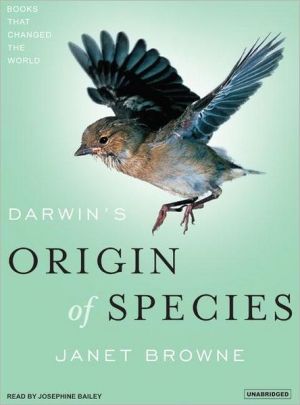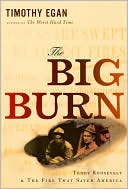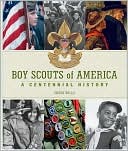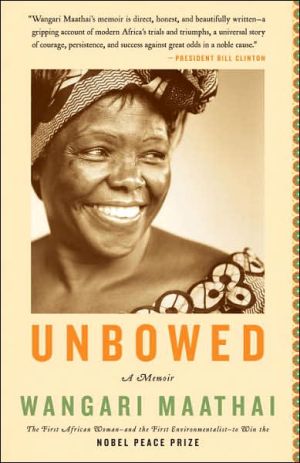Darwin's Origin of Species: A Biography
A sensation on its publication in 1859, The Origin of Species profoundly shocked Victorian readers by calling into question the belief in a Creator with its description of evolution through natural selection. And Darwin's seminal work is nearly as controversial today. In her illuminating study, award-winning biographer Janet Browne delves into the long genesis of Darwin's theories, from his readings as a university student and his five-year voyage on the Beagle, to his debates with...
Search in google:
A sensation on its publication in 1859, The Origin of Species profoundly shocked Victorian readers by calling into question the belief in a Creator with its description of evolution through natural selection. And Darwin's seminal work is nearly as controversial today. In her illuminating study, award-winning biographer Janet Browne delves into the long genesis of Darwin's theories, from his readings as a university student and his five-year voyage on the Beagle, to his debates with contemporaries and experiments in his garden. She explores the shock to Darwin when he read of competing scientists' similar discoveries and the wide and immediate impact of Darwin's theories on the world. As one of the launch titles in the Atlantic Monthly Press's Books That Changed the World series, Browne's history takes readers inside The Origin of Species and shows why it can fairly claim to be the greatest science book ever published. Publishers Weekly It may seem peculiar to write a biography of a book, but Darwin's Origin of Species is certainly a worthy subject. A foremost Darwin biographer, Browne takes a straightforward approach to the life and times of this famous tome, beginning with Darwin's early years and journey around the world. She then explains how he developed his theory of evolution (a word that doesn't appear in the first edition) during his years as a country scientist. Darwin included an unusual chapter on things he couldn't yet explain with his theory. On publication, the book gained instant celebrity around the globe-even Queen Victoria took notice of it, though she mused that the book would be too difficult for her to understand. In her discussion of the storm the book aroused, Browne makes the fascinating point that Darwin highly respected his American friend Asa Gray, whose views were very similar to those of today's advocates of intelligent design. Browne's final chapter on the book's legacy isn't comprehensive, but it's a good summary of subsequent modifications to Darwin's theory. This excellent introduction is highly recommended for all readers who want to better understand the heated debates that this book still causes today. (Mar.) Copyright 2006 Reed Business Information.
\ Publishers WeeklyIt may seem peculiar to write a biography of a book, but Darwin's Origin of Species is certainly a worthy subject. A foremost Darwin biographer, Browne takes a straightforward approach to the life and times of this famous tome, beginning with Darwin's early years and journey around the world. She then explains how he developed his theory of evolution (a word that doesn't appear in the first edition) during his years as a country scientist. Darwin included an unusual chapter on things he couldn't yet explain with his theory. On publication, the book gained instant celebrity around the globe-even Queen Victoria took notice of it, though she mused that the book would be too difficult for her to understand. In her discussion of the storm the book aroused, Browne makes the fascinating point that Darwin highly respected his American friend Asa Gray, whose views were very similar to those of today's advocates of intelligent design. Browne's final chapter on the book's legacy isn't comprehensive, but it's a good summary of subsequent modifications to Darwin's theory. This excellent introduction is highly recommended for all readers who want to better understand the heated debates that this book still causes today. (Mar.) Copyright 2006 Reed Business Information.\ \ \ \ \ KLIATT - Janet Julian\ Another entry in the Books That Changed the World series, this is a concise but thorough biography by a Harvard professor of the history of science, noted for her two-volume life of Charles Darwin. Readers follow Darwin from his birth in 1809, through his childhood and early schooling and his brief journey through medical school. His three years at Christ College, Cambridge landed him a berth on the Beagle, a voyage around the world that lasted five years and resulted in his theory of evolution. Browne covers Darwin's lifelong ill health, religious ideas, eugenics, Victorian capitalism, the furor following the publication of the Origin, paleontology, other contemporaneous scientists and theologians, Darwin's later books, and finally his death in 1882. His legacy includes eugenics, the Scopes trial in 1925, creation science, and the decision by the Kansas Board of Education in 1999 to make evolution optional in science teaching. Browne concludes that the Origin is "one of the hubs of transformation in Western thought." Reviewer: Janet Julian\ \ \ Library JournalReaders who might balk at embarking on Browne's grand, two-volume biography of naturalist Charles Darwin (Darwin: Voyaging and Darwin: The Power of Place) will find this thin book to be an inviting introduction by the expert herself. Browne, formerly a professor at the Wellcome Trust Centre for the History of Medicine, University College, London, brings her enthusiastically detailed research on the life and times of Darwin to bear on this volume, but she distills it to a treatment of the preparation, publication, and influence of his seminal 1859 book, The Origin of Species. One cannot help but imagine that this contribution to the publisher's "Books That Changed the World" series was relatively effortless for Browne following her massive Darwin biography. Nonetheless, in all of these books, among the things she succeeds in conveying best is not only the sense of what Darwin must have been like as a person but also the impact of his ideas on science and society. A good introductory book for public and academic libraries; highly recommended. [The most in-depth exhibit on Darwin to date will be on display at the Museum of Science, Boston, and the Field Museum, Chicago, between February 2007 and January 2008.-Ed.]-Walter L. Cressler, West Chester Univ. Lib., PA Copyright 2006 Reed Business Information.\ \ \ \ \ Kirkus ReviewsConcise history of the paradigm-altering book. Browne (History of Medicine/University College London) considers On the Origin of Species the greatest science book ever published. The editor of Darwin's correspondence and author of a definitive two-volume biography (Charles Darwin, 1995 and 2002) would hardly think otherwise. Browne makes it clear that Darwin knew religious shock waves would reverberate from the idea of "transmutation" by natural selection (the word "evolution" was only later applied to Darwinism); that was why he spent decades garnering his facts and postponing publication. Then came the 1858 letter from Alfred Russel Wallace outlining his own account of natural selection, followed by hurried arrangements to credit both men in short papers read at the Royal Society, and by Darwin's rush into print. Browne retells these familiar events in the context of an increasingly industrial and capitalist society. (T.H. Huxley may have trounced Bishop Wilberforce in the famous "ape vs. angels" debate, but many biblical scholars had already abandoned literal interpretations of the Bible.) The author brings onstage a large cast of opinion-makers, including John Stuart Mill, Karl Marx and assorted poets and writers, to stir the air. Darwin stayed out of the limelight but remained very much in the picture through letters. Browne describes his later life and books, but focuses on the fate of evolutionary theory. Another fine entry in Atlantic's Books That Changed the World series (see P.J. O'Rourke's On the Wealth of Nations, Jan. 2007).\ \ \ \ \ From the Publisher"Highly recommended." —-Library Journal\ \








